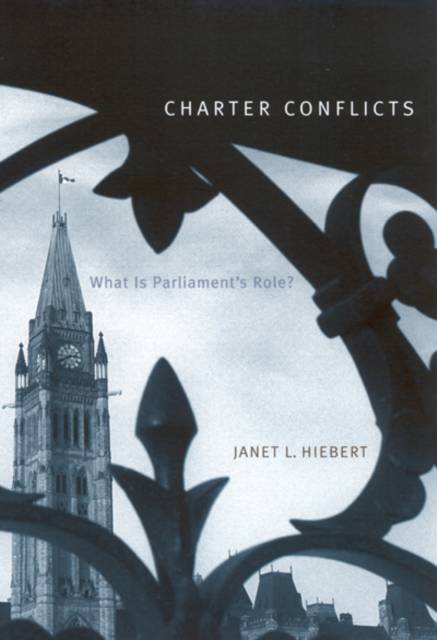
Wil je zeker zijn dat je cadeautjes op tijd onder de kerstboom liggen? Onze winkels ontvangen jou met open armen. Nu met extra openingsuren op zondag!
- Afhalen na 1 uur in een winkel met voorraad
- Gratis thuislevering in België vanaf € 30
- Ruim aanbod met 7 miljoen producten
Wil je zeker zijn dat je cadeautjes op tijd onder de kerstboom liggen? Onze winkels ontvangen jou met open armen. Nu met extra openingsuren op zondag!
- Afhalen na 1 uur in een winkel met voorraad
- Gratis thuislevering in België vanaf € 30
- Ruim aanbod met 7 miljoen producten
Zoeken
€ 44,95
+ 89 punten
Uitvoering
Omschrijving
Although the Canadian Charter of Rights and Freedoms is twenty years old, little is known about how it affects those who wield power, what influence it has on legislative decisions, or to what extent the government believes it should be constrained by Charter concerns. For most laws Parliament has the final word on how social policy is balanced against protected rights. Thus the extent to which legislation is sensitive towards rights depends on how those who develop, propose, and assess policy view the Charter. How influential are governmental legal advisors? How risk averse or risk tolerant are government ministers when pursuing legislative goals that may result in Charter challenges? How capable is Parliament in requiring government to justify and explain legislative choices that may impair rights? In Charter Conflicts Janet Hiebert examines these questions while analyzing the Charter's influence on controversial legislative decisions such as social benefits for lesbians and gay men, the regulation of tobacco advertising, the rules of evidence for sexual assault trials, the use of DNA for law enforcement purposes, and the rules for police searches of private residences. She questions the broadly held assumption that only courts are capable of respecting rights, arguing that Parliament shares responsibility with the judiciary for resolving Charter conflicts. She views the Charter's significance less in terms of the judiciary overruling Parliament than in the incentives and pressures it provides for public and political officials to satisfy themselves that legislation is consistent with protected rights.
Specificaties
Betrokkenen
- Auteur(s):
- Uitgeverij:
Inhoud
- Aantal bladzijden:
- 280
- Taal:
- Engels
Eigenschappen
- Productcode (EAN):
- 9780773524088
- Verschijningsdatum:
- 24/04/2002
- Uitvoering:
- Paperback
- Formaat:
- Trade paperback (VS)
- Afmetingen:
- 155 mm x 227 mm
- Gewicht:
- 453 g

Alleen bij Standaard Boekhandel
+ 89 punten op je klantenkaart van Standaard Boekhandel
Beoordelingen
We publiceren alleen reviews die voldoen aan de voorwaarden voor reviews. Bekijk onze voorwaarden voor reviews.











